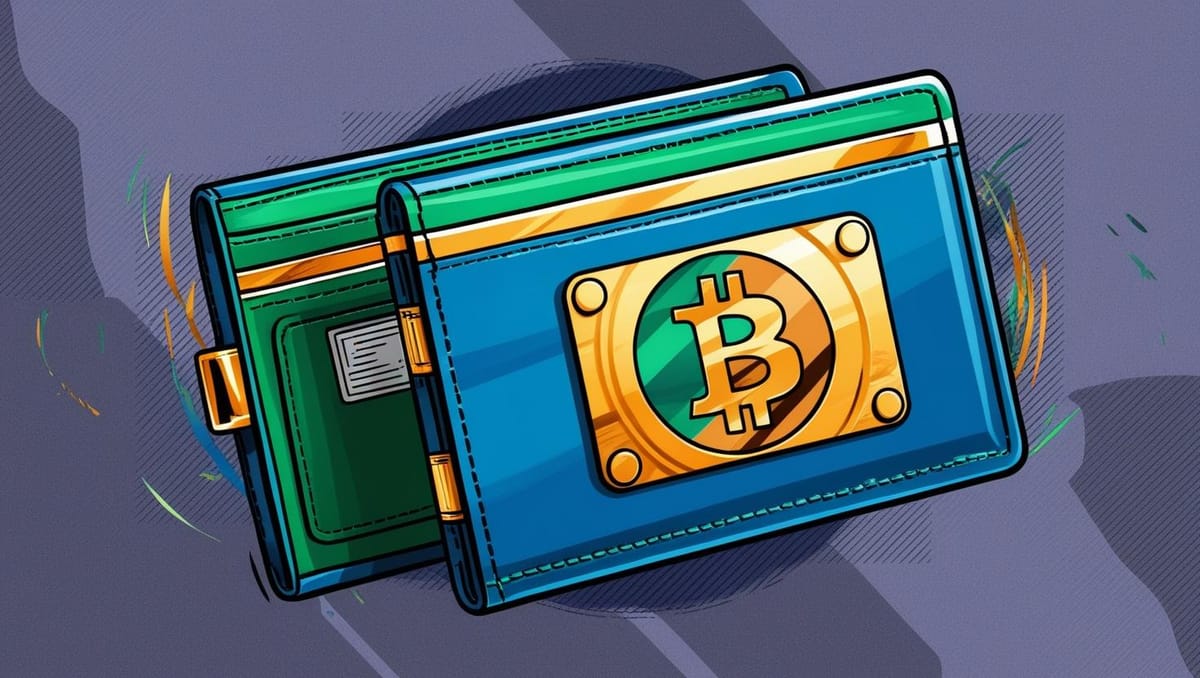Bitcoin Wallet: Understanding the Key to Managing Your Cryptocurrency

Bitcoin wallets are an essential part of the cryptocurrency ecosystem, serving as tools to securely store, send, and receive Bitcoin. A wallet not only holds your private keys, which give you access to your Bitcoin, but also ensures the integrity of your transactions. This article explores the types of Bitcoin wallets, their features, and how to choose the right one based on your needs.
What is a Bitcoin Wallet?
A Bitcoin wallet is a digital tool that allows users to interact with the Bitcoin blockchain. Unlike traditional wallets that hold physical money, Bitcoin wallets store private and public keys—cryptographic tools required to access and manage your Bitcoin.
- Private Key: A secret code that grants access to your Bitcoin. Losing this key means losing access to your funds.
- Public Key: A cryptographic code derived from the private key, used to generate your Bitcoin address for receiving funds.
Wallets are categorized based on how they store these keys and how they are used.
Types of Bitcoin Wallets
Bitcoin wallets are generally divided into two categories: hot wallets and cold wallets, based on their connectivity to the internet.
1. Hot Wallets
Hot wallets are connected to the internet and are ideal for frequent transactions. However, they are more vulnerable to hacking due to their online nature.
- Mobile Wallets:
- Examples: BlueWallet, Trust Wallet, Mycelium
- Features:
- Easy to use and portable.
- Compatible with both iOS and Android devices.
- Support for QR code scanning for quick payments.
- Use Case: Best for on-the-go transactions and small holdings.
- Desktop Wallets:
- Examples: Electrum, Exodus, Bitcoin Core
- Features:
- More secure than mobile wallets when used on clean, malware-free devices.
- Offer advanced features like multi-signature support and integration with hardware wallets.
- Use Case: Suitable for users who prefer managing their Bitcoin on a desktop or laptop.
- Web Wallets:
- Examples: Blockchain.com, Coinbase Wallet
- Features:
- Accessible from any device with internet access.
- No installation required.
- Risks: Vulnerable to phishing attacks and the security practices of the wallet provider.
- Use Case: Ideal for beginners or users prioritizing convenience.
2. Cold Wallets
Cold wallets are offline wallets, providing the highest level of security by keeping private keys disconnected from the internet.
- Hardware Wallets:
- Examples: Ledger Nano X, Trezor Model T
- Features:
- USB-like devices designed specifically for cryptocurrency storage.
- Immune to online attacks, even if connected to an infected computer.
- Use Case: Best for long-term storage and large amounts of Bitcoin.
- Paper Wallets:
- Features:
- A physical printout containing your private and public keys.
- Completely offline, making it highly secure if stored properly.
- Risks:
- Susceptible to physical damage or loss.
- Requires technical expertise to set up and use.
- Use Case: Suitable for those seeking offline storage without purchasing hardware wallets.
- Features:
How to Choose the Right Bitcoin Wallet
The right Bitcoin wallet depends on factors like security, convenience, and your intended use. Here are some considerations:
- Security Needs:
- For long-term storage, opt for a cold wallet (e.g., hardware or paper wallet).
- For small, frequent transactions, a hot wallet like a mobile wallet is sufficient.
- Technical Expertise:
- Beginners may prefer user-friendly web wallets like Coinbase or Blockchain.com.
- Advanced users might explore hardware wallets or desktop wallets with multi-signature features.
- Frequency of Use:
- Frequent traders benefit from hot wallets integrated with exchanges.
- Infrequent users storing Bitcoin for long periods should prioritize cold wallets.
- Cost:
- Hardware wallets involve upfront costs, while software and web wallets are typically free.
Best Practices for Using Bitcoin Wallets
- Backup Your Wallet:
- Always create backups of your wallet and store them in secure locations. This is crucial for recovering funds in case of device failure or loss.
- Secure Private Keys:
- Never share your private keys with anyone. Use encrypted storage for added security.
- Enable Two-Factor Authentication (2FA):
- If your wallet supports it, enable 2FA for an added layer of security.
- Use Trusted Wallets:
- Stick to reputable wallet providers to avoid scams or poorly secured applications.
- Keep Software Updated:
- Regular updates ensure you have the latest security patches and features.
The Future of Bitcoin Wallets
The evolution of Bitcoin wallets is closely tied to advancements in blockchain technology. Emerging trends include:
- Multi-Chain Support:
- Wallets increasingly support multiple cryptocurrencies beyond Bitcoin, enabling seamless portfolio management.
- Integration with Decentralized Finance (DeFi):
- Wallets are adding features for staking, lending, and borrowing within the DeFi ecosystem.
- Enhanced Privacy:
- Wallets with privacy-focused features, such as CoinJoin, are gaining popularity.
- Improved User Interfaces:
- Simplified designs and educational tools make wallets more accessible to new users.
Conclusion
Bitcoin wallets are the gateway to the cryptocurrency world, offering tools for managing your funds securely and efficiently. The right wallet depends on your specific needs, whether it's convenience for daily transactions, robust security for long-term storage, or a combination of both. As blockchain technology continues to evolve, wallets will become more versatile, secure, and user-friendly, empowering individuals to take full control of their digital assets.
This article presented by Loka Mining.
Loka is revolutionizing the Bitcoin mining ecosystem by directly connecting investors with Bitcoin miners through a decentralized mining pool and an upcoming permissionless forward hashrate marketplace protocol.
Loka enables investors to get Bitcoin at lower than market price without centralized & counter-party risks, and Bitcoin miners to access capital efficient financing and hedge their risk exposure by selling their future mining rewards.
Find out more about loka in https://lokamining.com — or access our mining pool aggregator on https://pool.lokamining.com





